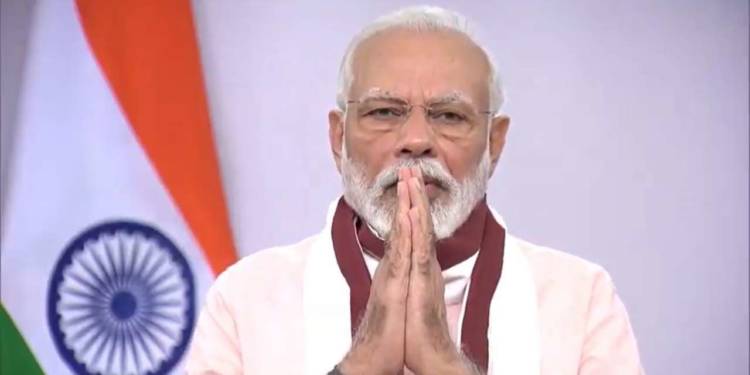The Modi government ever since it rode to power in 2014 has connected many wrongs which were surprisingly being ignored ever since India gained independence in 1947. In a move that will greatly benefit India’s rural sector, Prime Minister Modi is all set to hand over Aadhar-like cards for rural properties under the one of its kind Svamitva initiative.
For the first time in the history of independent India, the Prime Minister of the country will hand over the physical copies of property titles of homes and the surrounding areas owned by the rural landowners. The Aadhar-like cards albeit for properties which will be handed over by the PM were mapped by drones with the title deeds that can be leveraged by their holders as financial assets for loans. The cards will also help maintain a record of properties in the rural areas. It is important to note that no such records exist currently.
The Svamitva scheme was launched by PM Modi earlier this year and, it will be covering six states in the initial phase which are namely: Haryana, Karnataka, Madhya Pradesh, Maharashtra, Uttar Pradesh and Uttarakhand. On Sunday, around 132,000 landowners across 763 villages will receive their land ownership details which will not only help them improve their finances by securing loans against their properties but also end the decade-old property disputes.
The end goal of the scheme is to map all urban or abadi (populated) areas of 6.40 lakh villages by 2024.
Property disputes have long marred India’s rural sector with costly rural litigation fees often acting as a major hindrance in the sector’s development. The scheme will act as a solution as it will provide an integrated asset verification solution for rural India. The land of the residents in rural abadi areas will be demarcated using the latest survey methods like drones through the help of the Ministry of Panchayati Raj and other relevant departments.
To ensure that there are no disputes, later on, the local representatives of the revenue department will prepare a record of the ownership of the people in the presence of the local inhabitants, with a mechanism also being set up for on the spot settlement of disputes.
India inherited the centuries-old Zamindari system of the British with the sole aim of the Colonial era system being that of collecting as much revenue as possible. Since no land revenue was to be collected from the abadi area, the British made no effort to measure the populated areas of the village.
Shockingly, successive governments post-independence failed to either demarcating the abadi land or create ownership rights there which led to the disputed parties knocking the doors of a civil court in case of a dispute regarding possession, drainage, or boundaries which is a lengthy process that often takes a lifetime to settle.
The Modi government with the Svamitva scheme has arguably delivered one of the most important rural reforms in the history of independent India.

























